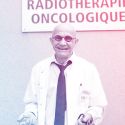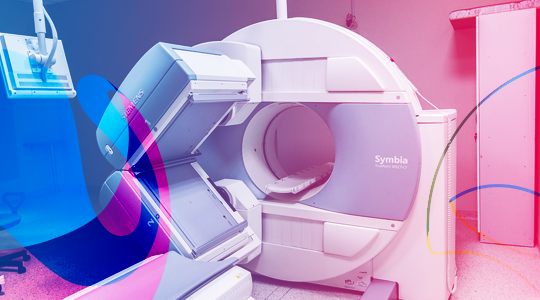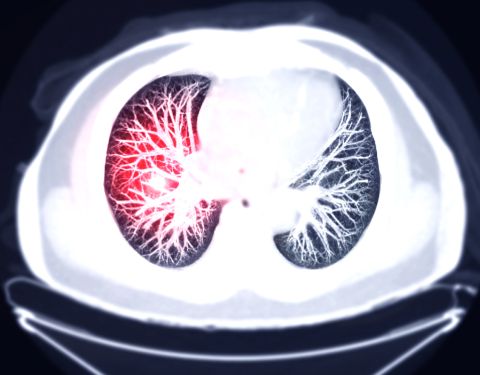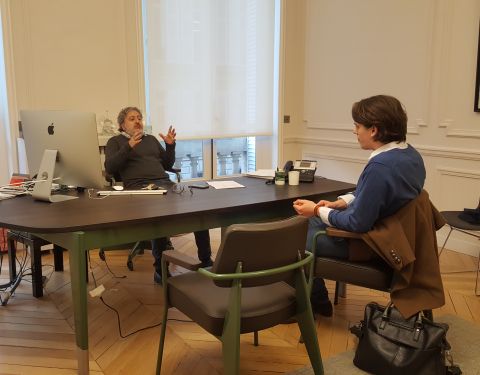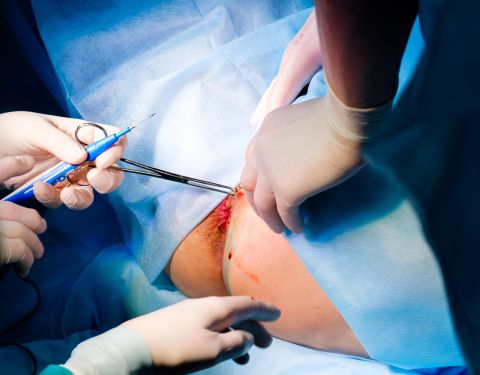To describe the principle of action of the disease, let us consider the biological structure of the pancreas. This organ consists of glands and ducts producing food enzymes and insulin.
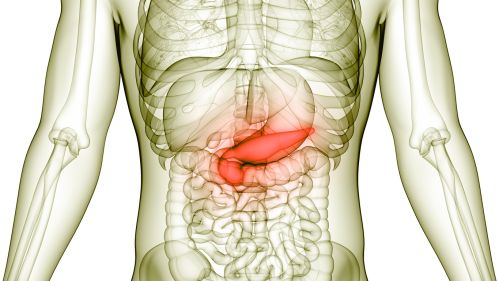
Pancreatic cancer is a tumor emerging from the gland cells and epithelium. As a consequence of mutational processes in cells, they start dividing randomly and a tumor grows of the immature epithelium. It can affect or put pressure on the neighboring systems in the abdominal cavity. It is similar to a node. Tumor cells move from the source of the disease through the lymph, blood and spread throughout the body, as well as in the abdominal area and metastases (secondary tumors). This type of cancer is relatively rare. The disease is most often localized in the head of the organ, less often in its body and tail.
Pancreas cancer is divided into the following types:
– squamous cell cancer;
– acinic-cell cancer;
– cystadenocarcinoma;
– undifferentiated cancer;
– adenocarcinoma (the most common type).
Pancreatic cancer causes
Conditions that can result in neoplasms: benign tumors and cysts, pancreatitis, especially hereditary one. Promoters: gallstone disease, diabetes, alcoholism, poor diet, smoking, cirrhosis, exposure to asbestos, age after 45.
Malignancy signs
Unfortunately, the symptoms of the disease are detected too late: the tumor has grown, it squeezes other systems and their ducts, which can lead to the intoxication of the body. The consequences: weight loss, loss of appetite, apathy, weakness, atony, fever. The first sign is pain occurring depending on the location of the tumor. Squeezing of the bile organs may cause obstructive jaundice, squeezing of the intestines and stomach may cause bowel obstruction, as well as other diseases such as diabetes, spleen damage. Any damaged area can also bleed.

As mentioned above, cancer symptoms may occur in two periods. During the early stages, patients do not have many complaints – mostly, they are girdle pain, heaviness, weakness, weight loss, deteriorating ability to work. The second stage begins with indigestion, jaundice, whitish stool, loss of appetite, nausea, diarrhea, vomiting, skin itching, belching, and dehydration.
Proper diagnostics
Correct diagnosing is often quite difficult. However, there are some signs that indicate the probability of cancer manifestation: jaundice and the respectable age of a patient. Modern examination methods are key to correct diagnosing. In France, the examination program may include ultrasound, MRI, PET-CT, X-ray, computed tomography, pancreatography, angiography and duodenography. During the examination, doctors pay attention to the size of the abdominal cavity organs and the presence of ascites.
After examining the patient, the enlarged liver is often detected, as well as the enlarged gall bladder due to an accumulation of bile. As a result of the spread of the tumor in the stomach or intestine, bleeding and luminal narrowing can occur.
A feature of the disease is that the cancer of the gland tail and body is found in the latter stages.
The tests are assigned, and in the case of cancerous disease, the blood test will show increased levels of enzymes, bilirubin, bile acid, and liver values and reduction of proteins. One of the most accurate diagnostics is biopsy. The sampling of biological material and its study help to determine the presence of the disease and its type.
Treatment of the disease
According to the World Health Organization, one of the world’s most effective medicines is French medicine, including oncology. The French oncological clinics have cutting-edge diagnostic equipment, and the staff regularly undergo training in the best cancer centers in the world. Also, the French hospitals are known for their high-level service. Accordingly, many cancer patients around the world prefer to be treated there. Early diagnostics carried out in the hospitals, allows to take measures that give hope for a positive result.
Treatment of pancreatic cancer in France is mainly surgical. With certain manipulations, the entire pancreas (or its part) is removed, sometimes with other tissues affected by a tumor: stomach, small intestine, lymph nodes, bile duct. Patients with successfully removed affected areas, have to take insulin and drugs for food digestion their whole life. If it is impossible to remove the tumor, palliative care is provided, i.e. surgical procedures to drain bile and facilitate the general condition are performed. One of such procedures is an insertion of a catheter into the bile ducts to facilitate bile draining in the narrowed segment (the device must be changed every three months).
Another method is to insert a stent into the bile duct constriction. The procedure requires a hospital stay for a few days. Also, after surgery to remove the tumor, patients can undergo sessions of radiotherapy preventing the emergence of new manifestations of the disease. For inoperable patients, radiotherapy is administered in order to reduce their pain. Chemotherapy is more effective in combination with radiotherapy. It is used as a palliative measure. Some patients try to cure the disease with folk remedies, but doctors warn of the dangers of such experiments.

Hormone therapy is very effective with such a tumor. It allows extending the life of patients in some cases.
Hormone therapy is one of the most effective ways to fight against the disease. In this case, special drugs affect the hormones responsible for the growth of bad cells.
This type of treatment may include:
– use of drugs that reduce the hormonal level in the body;
– use of drugs that block the effect of hormones on the cancer cells;
– removal of organs that produce such hormones.
Hormone drugs are prescribed either before surgery to reduce the tumor, or after it in order to prevent relapse and to control the occurrence of metastases.
The modern French oncological clinics also use new treatments:
– microwaves;
– freezing;
– nano-knife;
– radio frequencies.
The discoveries in the field of study and treatment of pancreatic cancer:
1) genetic predisposition (scientists develop tests for early detection of the disease, carry out tests for KRAS genetic marker);
2) modern drugs for both the single chemotherapy and chemotherapy combined with radiation are developed;
3) new targeted drugs are invented (drugs with the targeted effects that have fewer side effects);
4) innovative immunotherapy (stimulation of the human immune system to fight against cancer cells);
5) use of non-traditional methods of radiotherapy.
Innovations of the leading European scientists
The used types of chemotherapy and the modern inventions of targeted therapy allow for small improvements, while activation of the body’s biological forces can lead to a much better result.
A new medical invention – immune therapy – has been widely used recently. This method of treatment is of a special category of “therapeutic vaccines” – drugs that destroy cancer cells with the help of human immunity. Eminent experts say that immune therapy is able to destroy tumor cells, which chemotherapy could not destroy. The immunity of a patient cannot recognize bad cells mistaking them for healthy ones, accordingly, not trying to destroy them. Specialized vaccines are aimed at “training” the body’s defenses to destroy malignant cells.
The great advantage of immune therapy is minimal side effects.
European scientists have developed and successfully tested special drugs that cause a resistant protective immune response. After such treatment, a significant number of patients feel well or become stable, which does not require any additional funds.
A great number of patients reported diminishing of their symptoms, and the results of their tests improved.
In addition, the French scientists made a unique discovery in treating tumors of the pancreas: the growth of cancer cells can be stopped by blocking certain enzymes in the body, which gives a chance for recovery to many people across the globe.
Please contact us for further information





